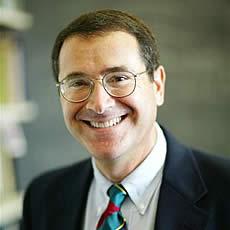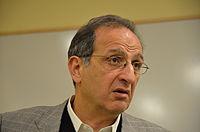The next scientific breakthrough could come from the history books
The idea that science isn’t a process of constant progress might make some modern scientists feel a bit twitchy. Surely we know more now than we did 100 years ago? We’ve sequenced the genome, explored space and considerably lengthened the average human lifespan. We’ve invented aircraft, computers and nuclear energy. We’ve developed theories of relativity and quantum mechanics to explain how the universe works.
However, treating the history of science as a linear story of progression doesn’t reflect wholly how ideas emerge and are adapted, forgotten, rediscovered or ignored. While we are happy with the notion that the arts can return to old ideas, for example in neoclassicism, this idea is not commonly recognised in science. Is this constraint really present in principle? Or is it more a comment on received practice or, worse, on the general ignorance of the scientific community of its own intellectual history?
For one thing, not all lines of scientific enquiry are pursued to conclusion. For example, a few years ago, historian of science Hasok Chang undertook a careful examination of notebooks from scientists working in the 19th century. He unearthed notes from experiments in electrochemistry whose results received no explanation at the time. After repeating the experiments himself, Chang showed the results still don’t have a full explanation today. These research programmes had not been completed, simply put to one side and forgotten.
New perspectives on old investigations might turn out to be promising routes to radical research. Most current research programmes represent attempts to make incremental advances, nurtured and supported by a conservative system of peer review. But the generation of really fresh ideas requires methods that don’t just rely on linear progression.
Sometimes this non-linearity comes from new experiments or theories. For example, Albert Einstein developed his theory of special relativity in 1905 from studying a series of thought experiments he had devised. The Nobel Prize-winning Dutch physicist Heike Kamerlingh Onnes’s experimental prowess while studying how metals behaved at very low temperatures led to his discovery of superconductivity. But looping back into forgotten scientific history might also provide an alternative, regenerative way of thinking that doesn’t rely on what has come immediately before it.
Collaborating with an international team of colleagues, we have taken this hypothesis further by bringing scientists into close contact with scientific treatises from the early 13th century. The treatises were composed by the English polymath Robert Grosseteste – who later became Bishop of Lincoln – between 1195 and 1230. They cover a wide range of topics we would recognise as key to modern physics, including sound, light, colour, comets, the planets, the origin of the cosmos and more.
We have worked with paleographers (handwriting experts) and Latinists to decipher Grosseteste’s manuscripts, and with philosophers, theologians, historians and scientists to provide intellectual interpretation and context to his work. As a result, we’ve discovered that scientific and mathematical minds today still resonate with Grosseteste’s deeply physical and structured thinking.Our first intuition and hope was that the scientists might bring a new analytic perspective to these very technical texts. And so it proved: the deep mathematical structure of a small treatise on colour, the De colore, was shown to describe what we would now call a three-dimensional abstract co-ordinate space for colour.
But more was true. During the examination of each treatise, at some point one of the group would say: “Did anyone ever try doing …?” or “What would happen if we followed through with this calculation, supposing he meant …”. Responding to this thinker from eight centuries ago has, to our delight and surprise, inspired new scientific work of a rather fresh cut. It isn’t connected in a linear way to current research programmes, but sheds light on them from new directions.
Take, for example, Grosseteste’s application of his colour theory to the rainbow, carried out in his final treatise. In explaining the differences of colours between and within rainbows on three axes related to his colour theory, Grosseteste put forward the basis of a coordinate system for colour embedded in nature.
It was only by looking at his discussion of rainbows recreated by modern physics that we could interpret his colour qualities in terms we use today. It’s the medieval equivalent of the way televisions combine coloured light, but written in the clouds with sunlight rather than on flat screens with liquid crystal displays. The finding also resonates with open research questions on why some colours seem closer to others in our perception.
One way of looking at the creative processes at work in this scientific dialogue with the 13th century is that it is just the kind of neoclassical (or neomedieval) science that some have assumed is impossible. We’ve found scientific ideas addressing current thinking in fresh ways in every treatise by Grosseteste we’ve examined so far, proving it’s not exceptional.
History is important. And through our collaboration through time with Grosseteste, we’ve shown it can undermine some of the brittle narratives told about modern science. We may be alone in space with our thoughts of communicating with the intelligence of other civilisations, but we need not be alone in time.
Giles Gasper, Senior Lecturer in Medieval History, Durham University; Hannah Smithson, Associate Professor in Experimental Psychology (Perception), University of Oxford, and Tom McLeish, Professor of Physics and former Pro-Vice-Chancellor for Research, Durham University
This article was originally published on The Conversation. Read the original article.















